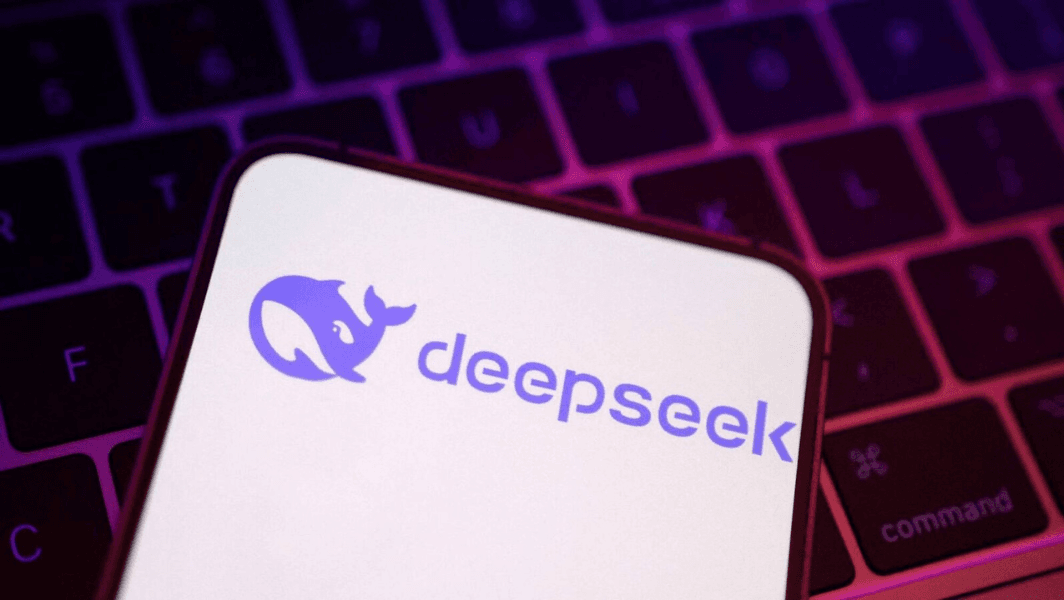
DeepSeek: The AI Revolution from China Disrupting the Global Tech Industry
Chinese AI Model DeepSeek Shakes Up Silicon Valley and Global Markets
A Chinese artificial intelligence (AI) model, DeepSeek, has skyrocketed to the top of Apple’s App Store downloads, sending shockwaves through the global tech industry. Its rapid ascent has not only impressed AI experts but has also disrupted financial markets, raising questions about the future of AI competition between China and the United States.
DeepSeek’s Rapid Rise and Global Impact
Released on January 20, DeepSeek’s latest iteration has gained widespread attention due to its efficiency and cost-effectiveness. Unlike industry leaders such as OpenAI, DeepSeek claims to have been developed at a fraction of the cost by using fewer advanced chips. This cost-efficiency has alarmed investors, leading to a dramatic decline in Nvidia’s market value, which saw a historic one-day loss of nearly $600 billion.
The success of DeepSeek has also highlighted China’s relentless push toward technological self-sufficiency. With U.S. restrictions on the export of advanced chips, Beijing has prioritized AI development, positioning startups like DeepSeek at the forefront of innovation in an increasingly competitive landscape.
What Is DeepSeek and Why Is It Different?
DeepSeek is a generative AI-powered chatbot, functioning similarly to OpenAI’s ChatGPT. It excels in various tasks, including coding, mathematical problem-solving, and conversational AI. The model is reportedly as capable as OpenAI’s GPT-4’s o1 model but operates with significantly lower costs and memory requirements.
Unlike many Western AI models, DeepSeek is trained to comply with Chinese government censorship, avoiding politically sensitive topics. When asked about events such as the Tiananmen Square protests, the chatbot refuses to provide details, demonstrating the influence of government oversight on AI development in China.
Cost-Effective AI Development Shakes Up the Market
DeepSeek’s creators claim that their model was developed for just $6 million—vastly lower than OpenAI’s reported costs exceeding $100 million for its cutting-edge models. This efficiency stems from DeepSeek’s strategic use of a mix of high-performance and lower-cost chips, including Nvidia’s A100 chips, which were stockpiled before U.S. export bans were enforced.
The AI industry has long been driven by expensive computational power, but DeepSeek’s breakthrough challenges this notion. The realization that high-performance AI models can be developed with fewer resources has unsettled global investors and reshaped market expectations for the future of AI technology.
Who Is Behind DeepSeek?
DeepSeek was founded in December 2023 by Liang Wenfeng, a relatively unknown figure who is now at the center of the global AI conversation. Liang, a graduate of Zhejiang University, has a background in electronic information engineering and finance. As CEO of High-Flyer, a quantitative hedge fund using AI for financial analysis, he has long advocated for China’s technological independence.
Liang’s vision for AI extends beyond imitation, as he aims to establish China as a leader in AI innovation rather than a follower of Silicon Valley. His recent presence at a meeting hosted by China’s Premier Li Qiang underscores DeepSeek’s growing significance in China’s AI strategy.
Market Fallout: Nvidia and US Tech Giants Hit Hard
DeepSeek’s emergence has sparked a financial upheaval, particularly in the semiconductor industry. The revelation that top-tier AI can be developed without the latest, most expensive chips led to a broad sell-off in tech stocks. Nvidia, the world’s leading AI chipmaker, suffered a staggering 17% drop in stock value, losing its status as the most valuable publicly traded company. The company’s market cap plunged from $3.5 trillion to $2.9 trillion, reflecting concerns over the future demand for high-performance chips.
DeepSeek’s efficiency has also cast doubt on OpenAI’s long-term dominance. While OpenAI remains the leader in AI innovation, investors are now questioning whether its massive expenditures and resource-heavy approach will continue to be the standard in the industry.
China Celebrates, But Global Concerns Grow
In China, DeepSeek’s success is being hailed as a milestone in the country’s quest for technological self-reliance. State media have celebrated the AI breakthrough as a sign that Silicon Valley’s dominance in AI is being challenged. President Xi Jinping has made AI a national priority, and DeepSeek’s rise is seen as validation of China’s new era of homegrown innovation.
However, concerns remain about AI censorship, data security, and the implications of China’s rapid technological progress on global competition. Australia’s Science Minister Ed Husic has urged caution regarding DeepSeek’s rise, citing concerns over data privacy and security risks associated with Chinese AI applications.
The Future of AI Competition
DeepSeek’s unexpected rise signals a shift in the global AI race, proving that innovation can thrive beyond Silicon Valley. The AI industry may now see a move toward more cost-efficient models, forcing companies like OpenAI, Google, and Microsoft to rethink their strategies.
As China continues its aggressive push into AI, the United States and other global players will need to adapt quickly to maintain their edge. Whether DeepSeek becomes a global force or remains largely confined to China, its impact on the AI industry is undeniable.
For any enquiries or information, contact info@thelawreporters.com or call us on +971 52 644 3004. Follow The Law Reporters on WhatsApp Channels